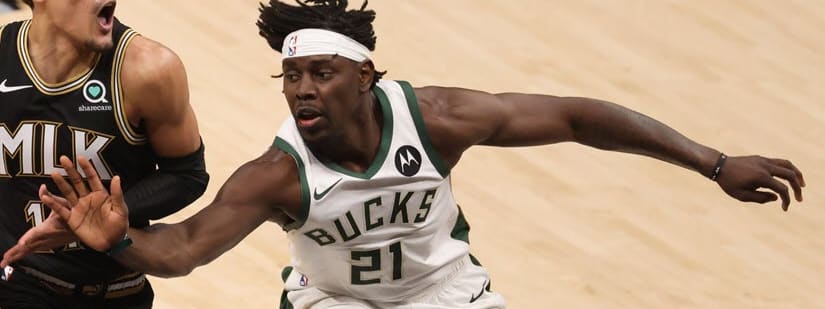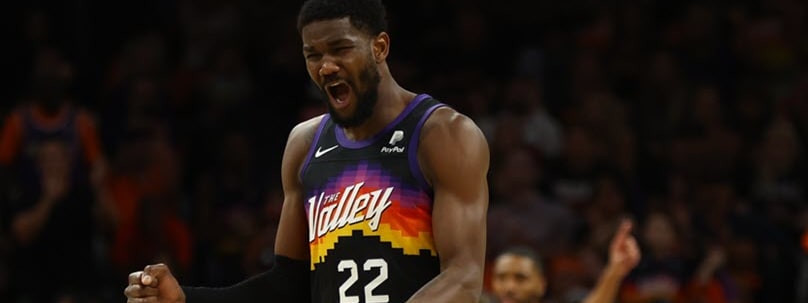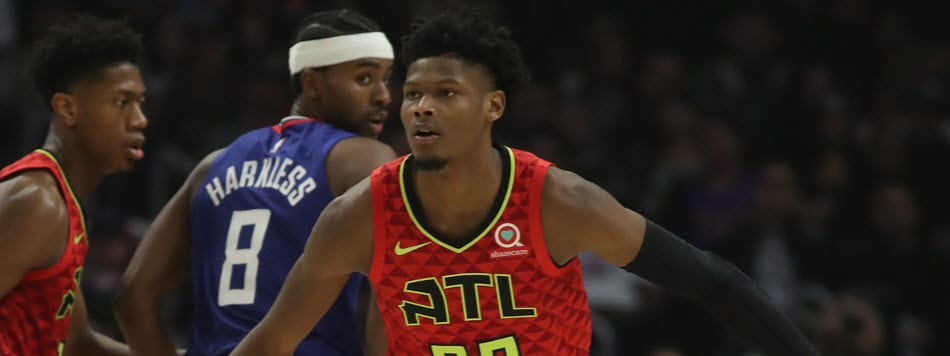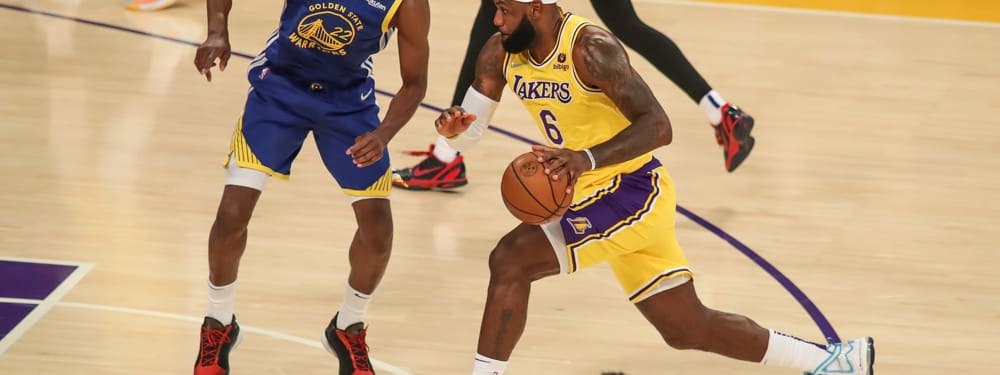Recent RotoWire Articles Featuring Isaiah Thomas
See More
Thomas joined the Wizards this offseason on a one-year deal and will play for his fourth team in three years. Thomas has put together two miserable seasons for three teams after an MVP-caliber season for the Celtics in 2016-17, and his motivation should be at an all-time high with Washington. With career averages of 18.6 points and 5.1 assists, Thomas presents possible upside at an affordable fantasy draft price. He boasts a respectable career field-goal percentage (43.7) and three-point percentage (36.0) despite a sharp drop off over the last three seasons. He's played a total of just 44 games over the last two campaigns while dealing with a hip injury, so his health concerns ultimately make him a risky fantasy prospect. Thomas is likely to open the season as the backup to Ish Smith, but Thomas may be able to carve out 20 minutes a night or more, even if he's coming off the bench. With John Wall likely out the entire season, Washington will need to get the most out of its guards not named Bradley Beal. When healthy, Thomas has proven to be a reliable scorer and facilitator and could be a late-round steal for those willing to take a gamble.
In a situation that has reached “saga” status, Thomas signed a one-year, $2 million contract with the Nuggets nearly two weeks after the beginning of free agency. To recap, Thomas was a significant part of the trade that sent Kyrie Irving to Boston, but was dealing with a hip injury that ended up affecting his play more than anticipated. In Cleveland, he appeared in 15 games before being dealt to the Lakers, where he played 17 games, in a massive deadline frenzy by Cavaliers’ General Manager Koby Altman. Overall, Thomas averaged 15.2 points on 37.3 percent shooting from the field and 29.3 percent from three, 4.8 assists and 2.1 rebounds across 26.9 minutes. In what is a prove-it deal, Thomas looks locked in to be Denver’s backup point guard behind Jamal Murray, and should have a chance to see around 20 minutes per game. With the possibility of re-injury and/or poor efficiency, selecting Thomas at any point in standard Fantasy draft is a risk.
Thomas is coming off of a career year, one in which he was part of the MVP debate for much of the season. In his second year with the Celtics, Thomas averaged new career-highs of 28.9 points and 3.2 made threes per game. His accuracy also increased, shooting a career best 46 percent from the field and an incredible 91 percent from the charity stripe. Throw in 5.9 assists, 2.7 rebounds and 0.9 steals per game, and Thomas finished as the 11th best Fantasy player in nine category leagues. Will that change now that he's joined LeBron James and Kevin Love in Cleveland following a late August trade for Kyrie Irving? Maybe a little bit. Playing next to James is going to be an adjustment period, as he demands the ball much more than Thomas' previous teammates in Boston. That's surely going to mean a drop in usage for Thomas, which in turn likely means his scoring and assist numbers are going to take a hit. However, James did average 8.7 assists a season ago and is a willing passer, which should give Thomas some open looks on the dribble drive. The presence of James could actually reduce the wear and tear on the mighty point guard. Thomas wore down near the end of last season, as the burden of being Boston’s primary scoring option visibly took its toll on the 28 year-old veteran. A recurring hip injury forced Thomas to miss Boston’s last three playoff games. This offseason, Thomas decided rest and rehabilitation was a better cure for his balky hip than surgery. Expect Thomas to see minimal minutes during the pre-season. That, unfortunately, will probably hinder initial chemistry development with James and Love. Expect the revised Cleveland starting lineup to take some time to gel. As for Thomas, it's unrealistic to expect another career high in scoring, especially playing alongside a ball-dominant James. But also remember this is a contract year for the All-Star and he'll be fighting to help Cleveland return to the Eastern Conference Finals for a potential rematch with his former squad, so Thomas should have all the incentive necessary to have another big year.
In his first full season with the Celtics, Thomas set career highs in scoring and rebounding en route to his first All-Star selection. The diminutive point guard posted averages of 22.2 points, 6.2 assists (nearly a career high), 3.0 rebounds and 1.1 steals per game across 82 contests, while shooting 42.8 percent from the field and 35.9 percent from three-point range. After the All-Star break, Thomas ramped up his scoring to 23.6 points per game, knocking down 38.2 percent of his treys as the Celtics locked up the fifth seed in the Eastern Conference. While he struggled in Boston's opening round series loss to Atlanta, shooting below 40 percent from the field, Thomas' season solidified his status as the team's No. 1 scoring option. That should again be the case in 2016-17, though he'll have to adapt to playing alongside four-time All-Star Al Horford, who will command a much larger share of the offense than any of last season's frontcourt players. On paper, the addition of Horford should only help Thomas, providing him with a floor-spacing center who's among the league's most lethal pick-and-roll threats, but there could be an adjustment period as the duo builds chemistry.
Last year, after up and down stints in Sacramento and Phoenix, Thomas finally found a home in Boston. The February trade deadline move that brought Thomas to the Celtics was a godsend for a Boston team desperate for Thomas' instant offense. Formerly criticized for taking too many shots, Thomas was encouraged to lead the offense the moment he donned the green and white. He started the season averaging only 11.1 shot attempts per game for Phoenix, but while playing for the C's, Thomas averaged 26 minutes, 13.5 shot attempts, 19.0 points, 5.4 assists, and 2.3 three-pointers per game while shooting 86 percent from the charity stripe. The only blemish was his 41-percent shooting from the field. For 2015-16, expect similar numbers from Thomas as reprises his role as leading scorer and offensive sparkplug off the bench. Yes, Thomas will reluctantly still come off the bench for Boston. But he'll still be encouraged to shoot. Newly-drafted guards Terry Rozier and R.J. Hunter should not eat into Thomas' minutes. And expect fellow backcourt mates Avery Bradley and Marcus Smart to focus on defense. Also, Boston's addition of David Lee might result in a modest uptick in assists for Thomas, as he'll now have a skilled veteran scorer to pick-and-roll with. The future looks bright for Thomas as he enters his fifth NBA season.
Thomas is entering his fourth year in the NBA and his first with the Suns. Last season as a member of the Kings, he averaged 20.3 points, 2.9 rebounds, 6.3 assists, and 1.3 steals in 35 minutes per game, while shooting a solid 45 percent from the field on 15.2 attempts. Thomas converted 35 percent of his three-point attempts and an excellent 85 percent of his free throws. He joined the Suns this offseason after spending his first three NBA seasons with the Kings. Thomas will likely come off the bench to begin his career in Phoenix, which should equate to a decline in minutes, as well as production. However, with the future of Eric Bledsoe still unsettled, Thomas could see a spike in his value at any moment this season. Even if Bledsoe sticks around all season, the Suns didn't give Thomas a contract in excess of $25 million dollars to warm the bench. Whether he starts or not, he'll have a major role on the team. As the sixth man, Thomas should add solid scoring, assists, and steals with the potential to contribute much more as his role with the fast-paced Suns fluctuates in accordance with Bledsoe's situation.
In 2012-13 Thomas saw an uptick in his production compared to his rookie year, but the arrival of Greivis Vasquez might hurt his value. Thomas may have been the biggest sufferer from former coach Smart's ever-changing lineups – the promising youngster's role changed often, despite often appearing to be the Kings' most talented point guard. Though the starting lineup is still undetermined, Thomas currently appears likely to come off the bench behind Vasquez. Even as a backup, however, Thomas will be used heavily, and is capable of providing scoring, assists, 3-pointers, and good guard percentages. Thomas has been a pleasant surprise as a second-round pick in 2011.
Thomas may have been “Mr. Irrelevant” as the last pick in the 2011 NBA Draft, but he was hardly irrelevant on the court in his rookie season. Tyreke Evans was moved over to shooting guard and fellow rookie Jimmer Fredette struggled to adjust to the NBA level, prompting the Kings to give Thomas more playing time. Thomas was ultimately installed by coach Keith Smart as the starting point guard, seeing major minutes in March and April. The boost in playing time gave Thomas the run he needed to show his potential. In 37 games as a starter, he averaged 14.8 points, 5.4 assists, 3.1 rebounds, 1.0 steals, 1.4 turnovers, and 1.6 threes. While his steals leave something to be desired, Thomas’ production in other point-guard centric categories easily makeup for his deficiencies in steals. Thomas might ultimately be best suited as a Jamal Crawford-like sparkplug off the bench, predicated on his ability to shoot from deep (1.3 threes per game) while providing matchup problems for slower, bigger guards. Despite finishing the season on a high note, Thomas’ starting job could be in jeopardy going into the season. The Kings signed free agent Aaron Brooks, who has previous starting experience with the Rockets. Evans also lurks if the Kings elect to move him back into the starting point guard role to give their wing players more minutes.
Named after the All-Star point guard, the under-sized guard will provide some explosiveness off the bench. But barring injury, he won’t see much court time this season.













